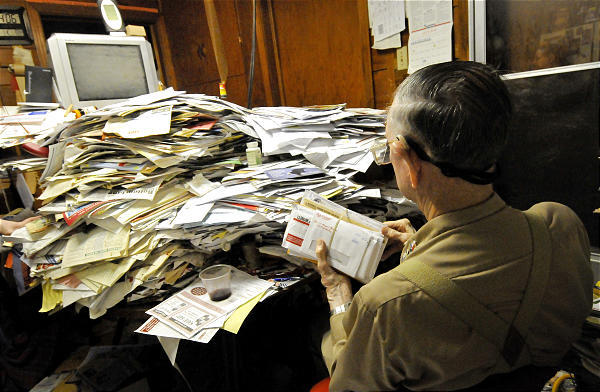Over the past ten years or so ( as of this posting) I have been fortunate only to change jobs twice. This means that I’ve really only had to set up two e-mail filing systems
1) Start wide, and narrow – When I’m setting up folders I like to start with a wider range of subjects. A “Wide” range are general subjects can be more general things that you can have subfolders that you will later be able to focus on should you need to. In your personal life, a wide subject could be things like “Bills” where later you will be able to subdivide by “phone bills” or “Electricity bills” when you get more e-mails of a more specific subject. In a professional capacity, you may want to keep e-mails from the people in your company. The wide range would be setting up a folder for each division in your company (Accounting, operations, legal) and then adding subfolders with the person’s names. Starting wide is easy because you can always subdivide if you need to.
2) Separate by subject – I have found that I get involved in certain things and I want to keep all the emails from that specific thing in one spot. In my personal life It could be a trip I’d like to take or an event I’m planning, and I love knowing that if I have to reference something from that specific event, I can always find the e-mails I always know I can see them. I do the same thing in my professional life. I have projects that I work on with multiple people that requires me to keep a record of conversations I’ve had through email. Keeping them all in one folder makes it so much easier to be able to track where I am in the project (and what I need to get done)
3) Separate personal and professional – I’ve talked about separating personal and professional (Hyperlink to article) before, and it’s something I really believe in. I usually get quite nervous for people when they use their professional e-mails for personal purposes or vice versa. I can understand if you’re
4) File regularly, file often – as indicated in my last post (hyperlink) it’s essential to maintain the sanctity of your inbox. Too much clutter in your mailbox will make it so that you won’t be able to see the forest from the trees. In a personal setting, I use my inbox to keep any e-mails that are current issues — conversations that are ongoing, bills or receipts that I haven’t gotten to yet. As soon as the discussion is over, or the bill is paid, that all get filed away. In a professional setting what I do is keep all of the “open issues” in my inbox for easy reference. Most of my open issues do not last longer than a week or so, so they aren’t in my inbox that long. Again, once the matter is closed, I go through and file them all away.
5) C
One of the things that you need to remember while you’re setting up your filing system is that because it is your system, you are capable of doing whatever you like. The absolute easiest system that you can make for yourself is one that you can navigate yourself. If the tips that I have outlined help then that’s great, but these are suggestions, not rules set in stone.
Have you set up your e-mail filing system?
Let me know in the comments section below. If you like this blog post and want to see more, you can follow me on Social Media (LinkedIn, Instagram, and Facebook @jasonlovefiles) or Subscribe to my blog to get new content delivered directly to your mailbox.


These are all great points. I am going to apply and will provide a feedback. Thanks Jason.
Hey Suresh,
Happy I was able to help!
Jason